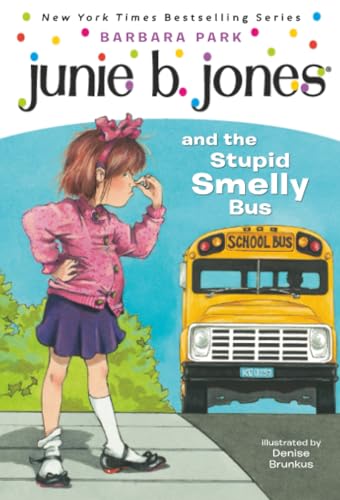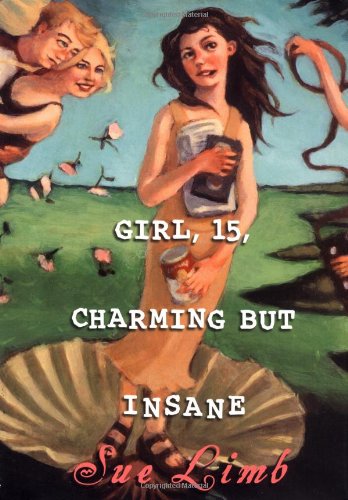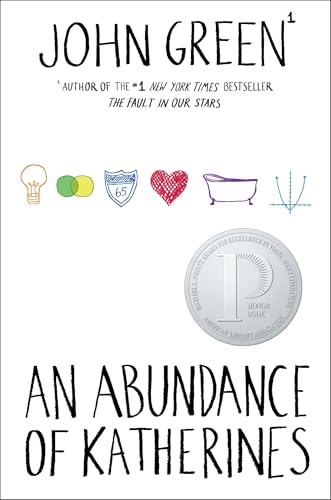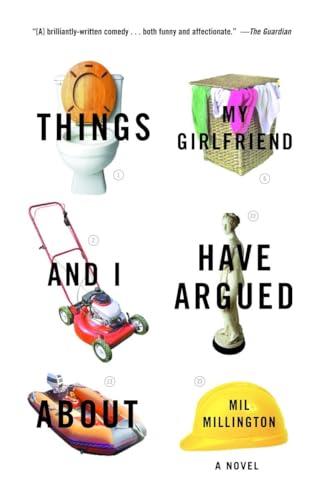The Federal Trade Commission is expected to vote this summer on new ethical guidelines for bloggers. While the revised guidelines will apply to all bloggers, FTC public affairs specialist Betsy Lordan told CNN, “Some of the bigger challenges include the mommy blogger issue and the extent to which the blogger must disclose a relationship with an advertiser.”This CNN article talks about a Public Relations Blackout challenge that Momdot is holding this week in an effort to return to the spirit of community, sharing, and stellar writing that has been taken over by controversy, jealousy, and product reviews. I am concerned that we aren’t taking the meltdown that’s occurring there and learning the lessons so we can avoid it here.
Over the past few months, I’ve seen several discussions about review copies, free bookshelves, advertising, professionalism, and making money. I could write a week’s worth of posts on any of the topics, but in the interest of being direct, I’m presenting the core of my thoughts on each issue. I’ve included links to posts that expand on each topic.
- Free books and ARCs aren’t at issue for book bloggers, given the necessity and history of review copies distributed to reviewers in print and online. However, being transparent about the books received from publishers makes it easier to recognize and avoid further problems with receiving other products. [More on bloggers and commercialism at Boston Bibliophile.]
- Many things can’t really be “reviewed,” no matter how it’s phrased in the pitch, which makes it closer to being paid in product to write about it. There are two issues here — whether you can objectively analyze something of value that was received at no cost and if an analysis of the product would truly be of use to your readers. [Also, watch for jealousy: J. Kaye’s Book Blog.]
- Publishers Weekly and other journals can take ads because there isn’t a direct benefit to the reviewers. The wall between sales and writers is what helps prevent a conflict of interest. As a blogger, you are both writing the reviews and taking the money from advertising, which makes it much harder to retain objectivity. [Read more on publishing and blogs at Tea Cozy.]
- For the most part, blogging should be approached as a creative outlet, writing practice, or networking opportunity. There shouldn’t be an expectation of free stuff or making money, no matter how much time and energy you put into it. [Read more on publishing and blogs at Tea Cozy.]
- However, that doesn’t mean that bloggers shouldn’t act professionally. In the book world, there are so very few “professional bloggers” and they make so little money that the phrase is practically meaningless. If you are getting free books or ARCs on any sort of regular basis, you have a responsibility to act in a professional manner. [Professionalism at Chasing Ray.]
























11 comments:
I really like this post and I think you sum up a lot of the issues very well. (disclosure: I'm one of the originators of BWI.)
But I do take issue with: For the most part, blogging should be approached as a creative outlet, writing practice, or networking opportunity.
I don't think any of us have the right to say what blogging should or shouldn't be. It's evolving faster than we can define it! But I will say that the most successful blogs are about the author's passions, and if you are not truly passionate about your content (say, a free jar of applesauce?) you can't expect to really connect with your readers. Without readers those freebies will dry up soon enough. I have to believe it will all sort itself out to some degree.
Thanks Mom101. It was hard to get the complex points down to a sentence or two, and some of them suffered more than others.
My point is that bloggers aren't somehow "owed" for their time, and they wouldn't expect it in any other "hobby." I'm trying to convey that the approach, the intent in blogging (especially in books, which is My Community) can't be with the expectation or sense of entitlement to getting free stuff and making money. Opportunities often present themselves to bloggers who focus on their passion and prove themselves over the long run.
Thanks for coming by.
Well-said, Pam. I know that I purchase far more books in a year than I ever receive as review copies, but I should do a better job of indicating the origin of any books I review here (purchased, review copy, or library book). I happen to agree with the assertion that Mom101 took issue with - it's a cogent articulation of what most kidlit blogs ARE, therefore saying that's how they ought to be approached is a bit of a tautology (and yet worth repeating).
I'm shocked to learn, however, that I missed out on free book shelves. I could use some more bookcases. (I am kidding, really - not about needing them, but about wanting freebies.)
Pam, I'm with you 100%. I still do think longingly of not accepting review copies any more. But it's not because I don't think that it's ethical to accept them. It's just because I kind of feel like I already have a lifetime's worth of books piled up, and it would simplify my life to just review books later in the cycle, and request the ones that I want from the library. I can't quite do it, because I DO like getting new books earlier, and I do discover books that I would have missed otherwise. But some days...
Terry Doherty wrote a post recently that I liked, where she equated blogging with integrity with blogging with authenticity. I kind of like that as a personal litmus test. Am I authentically excited to write about this? Or am I doing it because someone else wants me to do it for some reason? The latter is a very slippery slope, and I'm working on concentrating on the former - only writing about things that I really care about.
Thanks for giving us all the opportunity to think about these issues. Can't wait to talk more about some of this at the conference.
I decided that for me, it was better to avoid the possibility of anyone feeling deceived or like I was less than forthcoming so I am now clearly stating where books come from. I've seen bloggers who don't like that practice, but I'd rather be upfront about it and annoy a few people than seem like I have something to hide.
I can't imagine a product review would ever feel like it was worth the time and effort (a jar of applesauce? too much work! Just buy it!) unless it was an ereader or something.
Sometimes I see a hot title another blogger gets and feel a stab of longing, but really I don't feel any jealousy over the good fortunes of other bloggers. But that's just me.
Thanks for this thoughtful post. One thought on paid blogging: I no longer take review copies, but I do get paid (some, not a lot) to blog on a children's publisher's website. I've struggled with this issue--can I really blog with integrity when I'm paid by a publisher?--and have not come to a solid conclusion, but take some consolation in the fact that my connection with the publisher is quite obvious, not hidden or disguised in any way. My editors have told me multiple times that I'm free to write about any books I choose, and I've done so, but have shied away from posting about at least one controversy centered on a book from that publisher. What I'd like to do, and meant to do originally, is keep up an independent book blog as well, but have found that I just don't have the time to keep it up.
Kelly,
For that one concept, my trigger event was ARC-gate, in which Justine got so many direct requests for Liar that she had to write a post saying that she didn't have any ARC's, and then people got snippy about that. I also have seen statements around like "I work hard on my posts, why shouldn't I get free stuff?" It's the idea that going into blogging somehow entitles one to freebies or payment - not something you'd see with any other hobbies. I could use better wording on that thought, for sure. Any suggestions?
(Oh, and I was a bit jealous of the bookshelves myself. It's natural to feel that way, and that's one of the things that can spur on the drive for more stuff. Like, well she got free stuff, where can I get something?)
Jen,
I don't take many review copies anymore. Like you, I don't think it's an ethical issue but it feels like more pressure than I need. Another down side to the free stuff is the obligation and extra time involved. That's been another issue for mommy bloggers some of whom get 70 pitches a day. It can really turn a blog into work - and not the fun kind of work either.
I like the idea of authenticity, and I'll head to Terry's post.
Amy,
Several kidlit/YA folks here have been listing the book source for years. I haven't done it, but it didn't bother me either. With the recent developments though, I think it's a good idea.
One of the great things about book blogging, is that generally when I see a good title my response is more excitement to put it on my TBR list than jealousy that someone got it first. The reviews are what makes us excited about a new title, and with blogs we can share that excitement with the reviewer. I couldn't say that about a jar of applesauce.
Anonymous,
I don't think anyone takes issue with folks who get paid to blog. Congratulations, in fact, because it's so rare. As you say, your relationship with the publisher is obvious and you can choose what books to review. If you were being pressured to write something good about a book you couldn't stand, that would be a problem. When I talk about not having an expectation for making money, it's less about the opportunities that may come along - like getting a paid position - and more about going into blogging with the idea of what can I get.
Mom101, I agree that there is such a diversity in blogging that it is hard to write absolutes. That said, I've seen something in some blogs/comments that I've seen in fandom when it comes to fanfiction and fanart: "I put a lot of work into this so I should get paid." There are a lot of instances were hard work doesn't mean getting paid, and people should know that going in. A person who wants their work to be something they can get paid for should really look into the various areas and fields and do their homework to see if that expectation is realistic.
I find the MomBlog information fascinating, and agree with MR that I see similar things happening in the bookblogosphere, with the exception that for the most part review copies arent' an issue because they are such a standard part of traditional book reviewing. That said, with people reading blogs and not knowing about the supply of review copies, I think transparency and disclosure is important.
Most book bloggers start because they love books and talking about books. Things start getting more gray as blogs go beyond what they started as, and suddenly, it's not a handful of friends you're talking with but a few thousand. Amy did an experiment with a book to see the impact of a blog on book purchases in a positive way; if the argument is book bloggers can have a positive influence, then the argument also exists that the opposite is true. Look at Liar and the posts that had begun about boycotting the bloomsbury edition. I have a hard time with arguments that on one hand say "I don't have to do x because I'm just talking about books I love" and at the same time hearing "but we influence people more than traditional media". I'm not saying blogs don't influence; it's that with that role, responsibility includes considering things like ethics, standards, etc.
I also believe that discussion of these things can be as important as any decision, and we have to remember the blogosphere is huge. as Pam points out, the kidlit world has the "do i disclose" discussion years ago; but we shouldn't say "we discussed this already" because the world is bigger than "we." Some people did, but not everyone, and discussion should not be shut down by saying "we did this already."
I've bookmarked this so I can come back later & either reply in more depth or write another post on the subject. Great post.
What annoyed me about the bookshelf thing (and I've never posted on this anywhere) is that your average person can not judge if a bookshelf is really well made. I mean you put books on it and say they fit, you shove it up against the wall and it looks right and....well, you're done. Until the thing collapses (in one month or a year or whenever) you don't know much. Now get a carpenter in the room and he will tell you a million things about how it is constructed, is it a particle board design or not, is it screwed together or does it use fasteners, what kind of finish does it have, etc. (This is stuff my husband is throwing at me from across the room.)
I don't know this stuff - I can't review furniture and from the post on the free bookshelves it doesn't look like she knew much specific either. That wasn't a review in my opinion - it was publicity, plain and simple.
As for me, well I created my blog purely for connecting with folks and having a more informal place to talk about all kinds of books rather than my column which is much more regimented. I've always fallen into a weird place on these arguments because of Bookslut and the review copies generated by my association with it. To me the internet is all about the connections I've gotten in the literary world - getting into Booklist, meeting and signing with my agent and being able to do amazing things for teens in need via Guys Lit wire. I get a paycheck elsewhere - the blog is all about a longterm place in the literary world.
MR, right on. Posts like this remind new book bloggers especially to take their cues from people other than publishers and publicists--not that I have anything against publishers and publicists, as Seinfeld would say.
Sometimes bloggers look to publishers or other companies, say manufacturers of bookshelves, to tell them what to do, but I think that is due to naivete and inexperience. So educating yourself is very important. That applies to "old" bloggers, too. It's a continuing process.
Post a Comment